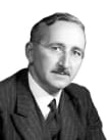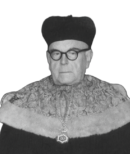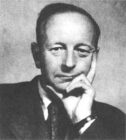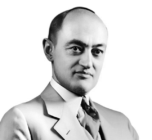Carl Menger (1840 - 1921)
Founder of the Austrian School of Economics
TAKE AWAY
Carl Menger was one of the most seminal thinkers in the History of Economic Thought. While classical economic doctrines were still caught up in hopeless contradictions due to the confusion of labor value, utility or utility value, Menger achieved the intellectual breakthrough with his book Principles of Economics, published in Vienna in 1871. Menger’s revolutionary theory of subjective value turned the classical approach upside down and arrived at one of the most influential insights in economics: People will exchange something they value less for something they value more. Because both trading partners do this, both gain. Menger’s, Inquiries into the Methods of the Social Sciences and with Special References to Economics, appeared in 1883 in Vienna and must be considered a milestone in the methodology of the social sciences. This book and his The Errors of Historicism in German Economics (1884) are still passionately discussed. This book was a frontal attack on Gustav von Schmoller and his Younger German Historical School. Menger’s insights into the origin and nature of social institutions and his emphasis on the methodological subjective approach prompted the unprecedented ‘Struggle over Methods’ of the 1880s. Menger immediately wrote a scathing rebuttal to Schmoller’s aggressive review of his book.
Kurt R. Leube
Of the three great scholars who succeeded in formulating marginal utility theory almost simultaneously but entirely independently in the 1870s, the Austrian Carl Menger was certainly in the most unfavorable position. While the Frenchman Leon Walras could only address a small circle of like-minded people because of his sophisticated mathematical presentation, William St. Jevons in England was mainly confronted with passive indifference. But Menger was not only confronted with Gustav von Schmoller’s powerful ‘Younger German Historical School’ which opposed all theoretical research and to an extent also dominated the Austrian universities. Moreover, Menger’s revolutionary theory of subjective value which turned the classical approach upside down was completely ignored when his groundbreaking book Principles of Economics was published in Vienna, in 1871.
However, usually only the slow progress of the discipline gives the pioneer the later well-deserved appreciation. It is thanks to his two ‘pupils’, Eugen von Böhm-Bawerk and his brother-in-law, Friedrich von Wieser that he evaded this frequent academic fate. Both scholars succeeded in further developing his work at the same intellectual level into a comprehensive system. They also made numerous decisive and seminal contributions that aided the foundation of the Austrian School of Economics.
Carl Menger was born on February 23, 1840 into the family of lawyers in Neu-Sandez (today Poland) and grew up together with his older brother Max, who later became a conservative sitting member of the Reichstag, and his young brother Anton, a leading socialist theorist of his time. Menger began his law studies in Vienna, continued in Prague and received his doctorate in Kraków in 1867. During breaks from his studies, in 1863 Menger briefly worked in Lemberg (today Ukraine) as a journalist for the Lemberger Zeitung, but moved back to Vienna in 1864 and became involved as editor-in-chief of a newly founded newspaper. He developed some degree of prominence for writing comedies and a number of popular serialized novels. In 1867 Menger joined the press department of the Council of KuK Ministers in Vienna and was given the tasks to prepare daily market analyses. Observing the behavior of individual market participants during their daily purchasing routines he soon noticed firsthand the erroneous assumptions of classical price- and value theories. Menger realized that the final source of any pricing in the exchange of goods or services can only be the subjective appreciation of consumers. The evaluation of each preference follows from the respective subjective expectation of the benefit. Still working in the KuK Council of Ministers office, without a teacher or any intellectual lead Menger began to work intensively on his first book, Principles of Economics (Vienna, 1871).
While classical economic doctrines were still caught up in hopeless contradictions due to the confusion of labor value, utility or utility value, Menger achieved the intellectual breakthrough and arrived at one of the most seminal insights in economics: People will exchange something they value less for something they value more. Because both trading partners do this, both gain. From the scarcity of economic goods, he concluded that value does not derive from the usefulness of the entire quantity of goods, but can only result from the subjective benefit of a concrete partial quantity of the respective good. Menger claimed that people rank-ordered their needs and applied successive units of goods to satisfying less and less urgent needs. Within a subjectively defined hierarchy of needs of a given quantity of goods, the value of a good would be equal to the least urgent use to which it was applied, i.e. the marginal utility (F.v.Wieser). The extent of the stock of goods thus becomes the determining factor of the subjective value and the causal-genetic relationships between the subjective expectations, evaluations and actions of the individual people in their social environment are therefore the focus of the theoretical interest of the Austrian school. Menger’s methodologically subjective approach to explanation became crucial for the understanding of all social sciences.
Only 3 years after the publication of his first book and despite some suspicions of having connections to liberal newspapers, Menger was promoted to full professor in 1879 Emperor Franz-Joseph I. However, at the request of Empress Elisabeth, he was appointed tutor of the young Crown Prince Rudolf and lecture in political economy. He also accompanied the Crown Prince on extensive study trips throughout Europe and maintained close contact until Rudolf’s promising life ended in the Mayerling tragedy in 1889. Menger’s moving obituaries testify to this very personal connection and his influence is also evident in numerous political essays that Rudolf with Menger’s assistance published mostly anonymously because of the reactionary attitude of the Imperial Court.
Menger’s exceptional talent for teaching and for combining clarity with philosophical depth attracted and inspired more and more students from all parts of Europe and even the USA. However, with Gustav von Schmoller as their undisputed leader, the Younger German Historical School and the majority of scholars under their influence not only showed a complete lack of interest in theoretical research and insisted on a conscious rejection of any deductive research. For Menger most of their academic work had almost degenerated into a kind of theoretical nihilism, as they see the culmination of scientific research in the reprints of some archival material, in excerpts from certain reports or in the morphological representation of individual economic phenomena. They were also largely stuck in historical research and increasingly mixed socio-political enthusiasm with political agitation. This methodologic fallacy is apparently still popular, and has been described by Karl R. Popper as historicism and F.A. von Hayek successfully debunked it as scientism.
Menger’s second book, Inquiries into the Methods of the Social Sciences and Political Economy in Particular, appeared in 1883 in Vienna and is considered a milestone in the methodology of the social sciences. However, due to the fact that Menger contrasted the cognitive and explanatory value of theoretical research with the empirical, economic-historical method, it was also a frontal attack on Schmoller and his school. Menger’s insights into the origin and nature of social institutions and his emphasis on the methodological subjective approach prompted unprecedented counterattacks. Menger immediately wrote The Errors of Historicism in German National Economy (1884), a scathing rebuttal to Schmoller’s aggressive review of his book.
Soon these passionate debates were fought not only by the masters themselves, but also by their students, at times almost viciously. They have become famous as the “Method Controversy”. Quite contrary to Schmoller’s intentions, a large number of original works appeared in rapid succession, which contributed significantly to consolidating Menger’s teachings and to the world-wide reputation of the Austrian School.
In 1892 Menger held a leading position in the Austro-Hungarian Monetary Commission, in which some of his most important students worked alongside Böhm-Bawerk, and published a number of trend-setting monetary theory works up to 1893. In particular, his article Geld should be highlighted here, in which he applies his individualistic approach to the theory of money. His depiction of the origin and development of money as a socially spontaneous institution and not an institution created by decree is fundamental. Ludwig von Mises later successfully developed this approach further in his classic book Theory of Money (1912).
Due to his academic standing, Menger was showered with honors and political positions. Among others he was promoted to ‘Hofrat’ in 1896, and only 6 years later he was appointed to the KuK Reichstag for life. Not only the Academie des Sciences Morales et Politiques in Paris offered a lifetime membership in 1894, the Royal Society of Edinburgh also made him an honorary member. In 1901 he was elected President of the Institut de Sociologie in Paris. However, after Menger became the father of a son at the advanced age of 62, he surprisingly withdrew from his successful teaching activities in the winter semester of 1903/04 and his political positions. Apart from a few shorter essays and the long obituary on Böhm-Bawerk (1914), Menger hardly published anymore and devoted his time to intensive studies in psychology, sociology, and anthropology. In his spare time he enjoyed fishing in the Danube and caring for his only son Karl (who later became a world famous mathematician). Unfortunately, the planned major work on the nature and methodology of the social sciences remained unfinished. Menger died on February 26, 1921 in Vienna.










































